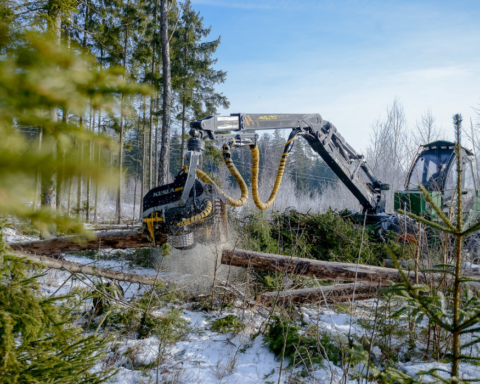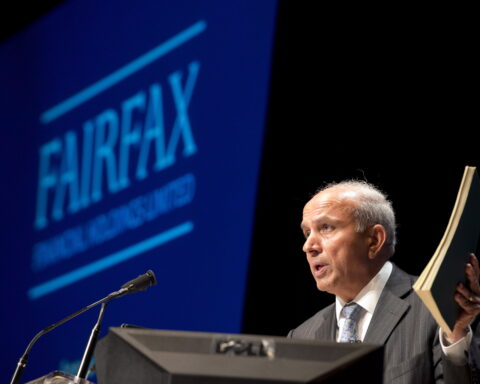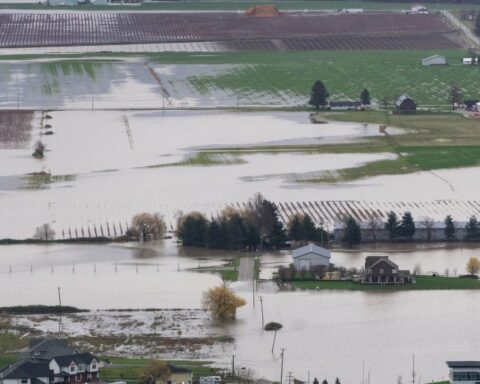Last month there was a rare meeting, where the chief executives of Canada’s five largest banks testified before Parliament about their climate commitments. Their testimonies proved why new rules to shift finance away from polluting investments are urgently needed.
The bank executive testimonies were part of a study by the House of Commons’ standing committee on environment and sustainable development about how the Canadian financial system contributes to the climate crisis. Using the findings from this study, parliamentarians hope to identify policies to advance a more sustainable financial system.
So far, the government has been slow to modernize our financial system to address climate change. While there has been general consensus across federal parties to align finance with climate action, the only tangible output has been in the Senate, where Senator Rosa Galvez introduced a proposed legislation called the Climate-Aligned Finance Act. New rules for climate-aligned finance make sense, given how climate risks already harm people across the country.
Parliamentarians summoned executives from Canada’s largest banks, often referred to as the Big Five – the Royal Bank of Canada (RBC), TD Bank, Bank of Montreal (BMO), Bank of Nova Scotia and CIBC – after they declined the original invitation.
During two hours of testimony, parliamentarians pushed the executives on how these banks are globally the largest investors in fossil fuels, and how this makes it harder for Canada to reduce emissions and meet its climate commitments.
Policymakers confronted the banks’ credibility on their stated climate targets. The Big Five all have commitments to reach net-zero by 2050, but none have published plans that show how they’ll reach their goals. According to Bloomberg research, the Canadian banks overinvest in oil and gas, and underinvest in clean climate solutions, relative to global peers.
Parliamentarians highlighted how this chasm between promises and actions misleads the public and creates risks. NDP MP Matthew Green asked RBC CEO Dave McKay, “When will you stop the greenwashing and double speak with climate plans when really you’re the companies pouring fuel on the fire?”
To address this chasm, other jurisdictions, such as the European Union, the United Kingdom, Hong Kong and Singapore, are moving toward introducing rules or guidance for climate transition plans that require banks to show concretely how they are decarbonizing their investments. Canada should follow suit. Currently, our federal regulator that supervises the Big Five banks only requires reporting on current emissions. Its rules reference the potential to require transition-plan reporting in the future.
When will you stop the greenwashing and double speak with climate plans when really you’re the companies pouring fuel on the fire?
–NDP MP Matthew Green
Even within these transition plans for climate action, the treatment of fossil fuels is a main sticking point. Liberal MP Leah Taylor Roy asked if the banks would commit to, when investing in oil and gas, “only invest in projects that reduce emissions.” BMO CEO Darryl White responded that he was “committing to continuing to finance our clients.” This is not terribly reassuring for a claim of financing positive change and climate action.
The Big Five provided $140 billion in financing to fossil fuels last year, which represents more than 13% of all fossil fuel financing by global banks. The International Energy Agency confirmed that any expansion of oil, gas or coal is inconsistent with a scenario of keeping warming to the safer level of below 1.5°C. Climate experts point to the need for a managed yet urgent phaseout of existing fossil fuels, particularly in Canada given our high historical contribution to global emissions.
A framework, known as a taxonomy, to define which investments are aligned with science-based climate action has been contentious, and the Ministry of Finance under Deputy Prime Minister Chrystia Freeland has been working on that for the better part of two years. Rumours have swirled that her department is trying to force fossil fuels, like so-called natural gas, into the climate-aligned label. Given that “natural” gas is composed of methane, whose global warming potential is more than 80 times higher than that of carbon dioxide, this move would be as deceitful as including harpooned whales under Ocean Wise (a sustainable seafood certification).
Earlier this year, more than 70 environmental groups wrote to the government about why fossil fuel investments – “natural” methane gas in particular – must be ineligible for the taxonomy’s sustainability label. The groups, including Environmental Defence Canada and Climate Action Network, emphasized that “there should not be a Canadian taxonomy unless it credibly aligns with” limiting global warming to 1.5°C.
The federal government seems on track to falsely label many kinds of fossil fuels as good for the climate transition despite expert concern. This would be, regrettably, a green thumbs-up for the Canadian banks to continue their harmful business as usual.
During the bankers’ hearing, the link between our financial system and a worsening climate crisis was made clear, and that link must be addressed. Parliamentarians should recommend credible climate transition plans across the economy, and most urgently, that any government sustainable-investment label exclude oil and gas.
Julie Segal is senior program manager of climate finance at Environmental Defence Canada. Alex Cool-Fergus is national policy manager at Climate Action Network Canada.







